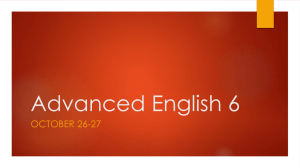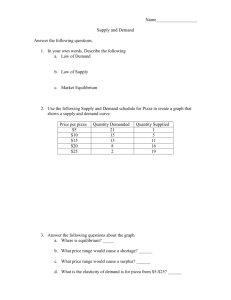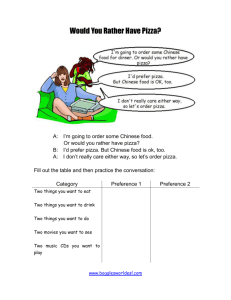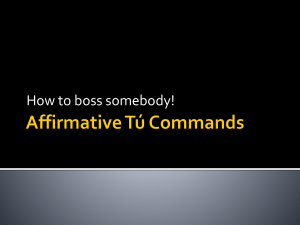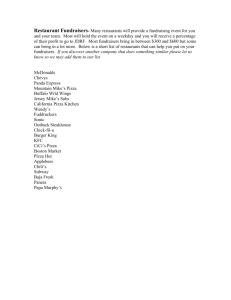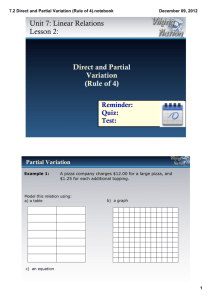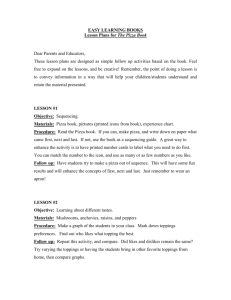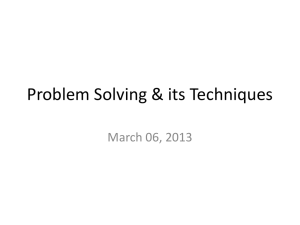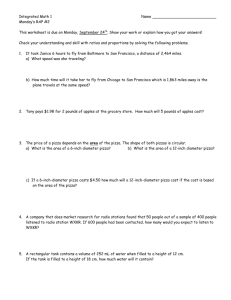Document
advertisement
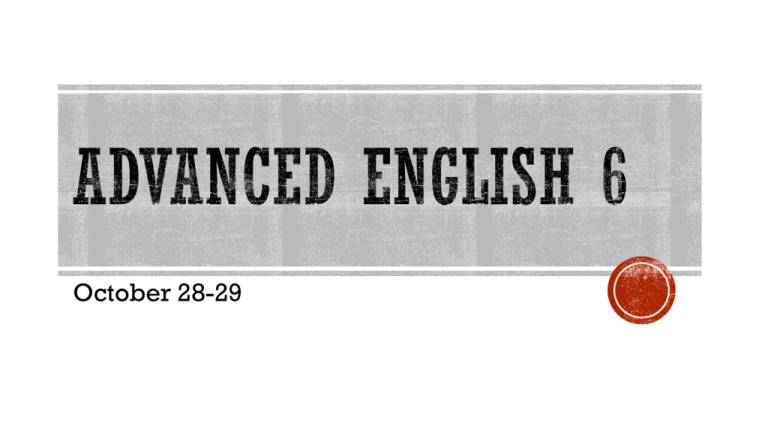
October 28-29 Check in; set 3 goals for the day Review clauses and dialogue punctuation Read “Matthew Henson at the Top of the World” and “Over the Top of the World” and do Habits of Mind activity (pink paper)-turn in to class bin when finished Read “The Red Guards” and do Habits of Mind activity (pink paper)-turn in to class bin when finished Work on vocabulary activities-turn in to class bin when finished Read individual novel and journal Type personal narrative Work on portfolio Can stand alone as a complete sentence Needs to attach to a complete thought to make it a sentence What is the difference? What makes a sentence? Subject Verb Complete thought What is a clause? Group of words that has a subject and a verb I walked. The lion roared. He opened. If I go. Because I said so. Sentence: subject, verb, complete thought Fragment: part of a sentence; may have subject OR verb, not both; needs more to be a complete thought I love pizza. Because I love pizza. Because I love pizza, my mom makes sure we have it for dinner at least once a week. Run-on: putting two sentences together with no punctuation or with JUST a comma Comma splice: joining two sentences with JUST a comma “I love pizza!” I exclaimed. I exclaimed, “I love pizza!” “Where am I?” I asked. I asked, “Where am I?” “Yes, I want to have pizza for dinner,” I stated. I stated, “Yes, I want to have pizza for dinner.” “Yes,” I stated, “I want to have pizza for dinner.” Read the stories individually or with a partner. Pay attention to the footnotes & ideas/questions in the margins of the page. Focus on fluent, smooth reading & clarification of meaning and vocabulary as you read. As you read, take notes on the pink Habits of Mind sheet provided, finding examples of characters who used the Habits of Mind. You can write a one-sentence summary of how the character(s) used the Habit(s) of Mind. Also, find examples of derivatives from your Greek and Latin roots as you read. You can write the derivatives on your vocabulary sheet, and put a star beside the derivatives from the story. Read the story individually or with a partner. Pay attention to the footnotes & ideas/questions in the margins of the page. Focus on fluent, smooth reading & clarification of meaning and vocabulary as you read. As you read, take notes on the pink Habits of Mind sheet provided, finding examples of characters who used the Habits of Mind. You can write a one-sentence summary of how the character(s) used the Habit(s) of Mind. Also, find examples of derivatives from your Greek and Latin roots as you read. You can write the derivatives on your vocabulary sheet, and put a star beside the derivatives from the story. Vocabulary Activities: due Friday, October 30 and Monday, November 2; turn in to class bin when finished Reading: Choice novel Journals: Based on choice novel; see yellow sheet for topics; due Friday, October 30 and Monday, November 2; turn in to class bin when finished Personal narratives: Final papers due Wednesday, November 4 and Thursday, November 5; submit electronically Stories and pink papers due Wednesday, November 4 and Thursday, November 5 Portfolio: add “Where I’m From” poems, personal narratives, reflections, middle school pages

